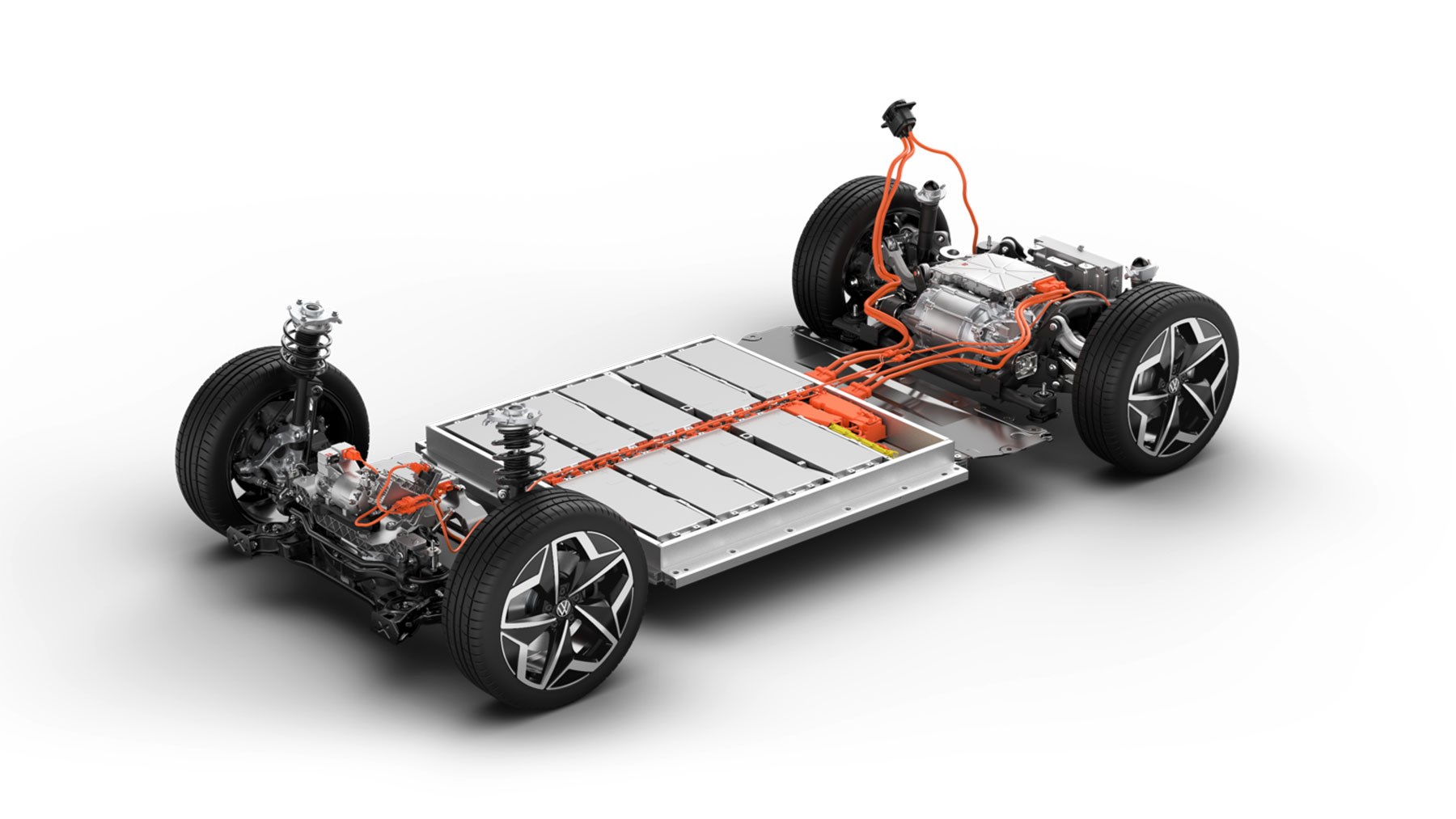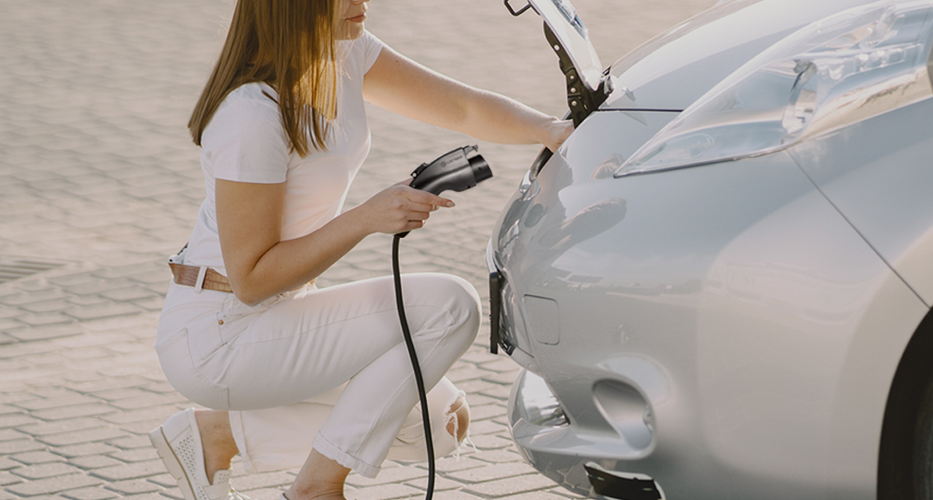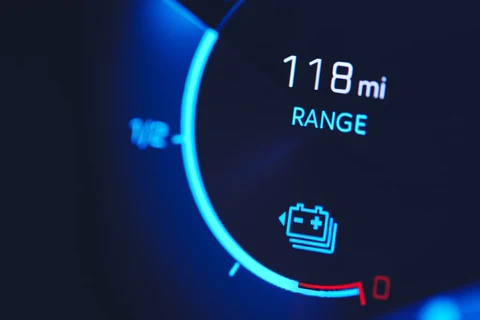Can A Weak Battery Affect EV Performance
The battery is the heart and soul of electric vehicles (EVs). It's responsible for powering the crucial components of an EV, from the critical electric motor that propels the wheels to the windows and interior lights that give it a sleek look. Now imagine your battery slowly losing its power.
Lithium-ion batteries, the kind EVs and smartphones use, are known for their high energy density despite their lightweight build. However, they're also prone to degradation, especially with frequent charge and discharge cycles.
So how can a dead battery affect your EV's performance?
What Components of an EV Does the Battery Power?

The automobile battery is a crucial component that powers several systems, electronics and functions. Here are the primary components and systems that an EV battery powers:
1. Electric Motor: The most critical component of cars powered by the EV battery is the electric motor. The motor converts electrical energy from the battery into mechanical energy, which propels the vehicle. The performance and efficiency of the electric motor are directly tied to the battery's health and capacity.
2. Auxiliary Systems: EV batteries also ensure there's enough power to maintain auxiliary systems essential for the vehicle’s operation and comfort:
-
Climate Control System: The battery powers the air conditioning and heating systems. Managing the cabin temperature efficiently is vital, as it can significantly impact the battery’s range.
-
Infotainment System: This includes the touchscreen display, audio systems, navigation, and other multimedia functions.
-
Lighting: All the vehicle's lights, including headlights, taillights, interior lights, and dashboard lights, are powered by the battery.
3. Regenerative Braking System: Regenerative braking systems convert kinetic energy back into electrical energy during braking, which is then stored in the battery. This process helps extend the vehicle's range and improves the car batteries overall energy efficiency.
4. Power Steering: Modern EVs often use electric power steering systems, which draw power from the battery. This system provides the necessary assistance to the driver, making steering easier and more responsive.
5. Vehicle Control Systems: Several control systems in an EV rely on battery power to function properly:
-
Battery Management System (BMS): Monitors and manages the battery's health, temperature, and state of charge to optimize performance and longevity.
-
Electronic Control Units (ECUs): These control various functions of the vehicle, including motor control, energy management, and driver assistance systems.
6. Safety Systems: Safety systems in EVs, such as airbags, anti-lock braking systems (ABS), and electronic stability control (ESC), are powered by the battery. These systems are crucial for maintaining safety and vehicle control during operation.
7. Charging System: The on-board charger, which is electrical system that converts AC power from a charging station to DC power that can be stored in the battery, is also powered by the battery. This electrical system ensures that the battery charges efficiently and safely.
8. Miscellaneous Electrical Components: Other electrical components, such as power windows, door locks, mirrors, and seat adjustments, are powered by the battery. These features add convenience and comfort to the driving experience.
EV Battery Degradation
Battery degradation is an inevitable process where the battery’s ability to hold a charge diminishes over time. This degradation can be due to various factors, including chemical reactions within the battery, repeated charge and discharge cycles, and environmental conditions. As the battery degrades, it results in a reduction in the vehicle’s range, poor engine performance, longer charging times, and decreased acceleration. A weakened battery can also affect the reliability of the vehicle, leading to unexpected power drops and potential safety issues.
Factors Accelerating Battery Degradation
Several factors can accelerate EV battery degradation, from the simple usage of brakes to how much charge is left before you plug it in.
Charging Behavior

Charging habits are a major factor influencing battery degradation. Frequent use of DC fast charging, which deliver high power in a short time, can increase the temperature and stress on the battery, leading to faster wear. Level 2 charging is ideal for a healthy battery as it is the right balance between the convenience of Level 1 chargers and the power of public chargers. Level 2 chargers come in portable and hardwired versions.
Similarly, charging the battery to 100% or allowing it to discharge completely regularly can also accelerate degradation. It is generally recommended to keep the battery charge level between 20% and 80% for optimal health.
Extreme Temperature
Temperature extremes, both hot and cold, can adversely affect battery health. High temperatures can cause the battery to overheat, leading to thermal degradation of the battery cells. On the other hand, extremely low temperatures can slow down the chemical reactions inside the battery, reducing its efficiency and performance. Prolonged exposure to such temperature extremes can cause irreversible damage to the battery, significantly shortening its lifespan.
Driving Style
Aggressive driving habits, such as rapid acceleration and frequent braking, can put additional strain on the battery. This driving style increases the rate of discharge and generates more heat, which can accelerate the degradation process. Smooth and consistent driving can help in maintaining the battery health and extending its life.
Battery Maintenance
Proper battery maintenance is crucial for prolonging the life of an EV battery and ensuring optimal performance. Regular maintenance includes keeping the battery within a moderate state of charge, avoiding extreme temperatures, and minimizing the use of fast charging. Additionally, software updates from the vehicle manufacturer can optimize battery management systems, helping to balance the charge and discharge cycles more effectively.
Can A Bad Car Battery Cause Electrical Problems
Given how most of an EV's functionality is dependent on enough power from its batteries, a weakened or degraded battery can have several negative impacts on its performance.
Reduced Range

One of the most noticeable effects of a bad battery is the reduction in the vehicle’s range. As the battery degrades, it loses its capacity to store energy, which means the vehicle can travel fewer miles on a single charge. This reduction in range can be inconvenient for daily commutes and may require more frequent charging stops on longer trips.
Slower Acceleration
The performance of an EV is directly linked to the health of its battery. A weak battery can lead to slower acceleration, as the vehicle may not be able to draw the required power to achieve optimal performance. This can affect the driving experience, making the vehicle feel less responsive and reducing the enjoyment of driving an EV.
Longer Charging Times
As the battery’s capacity diminishes, it may take longer to charge. This is because the battery management system may need to balance the cells more frequently and carefully to prevent overheating and further degradation. Longer charging times can be inconvenient, especially if the vehicle is needed for regular use.
Decreased Reliability
A degraded battery can also affect the overall reliability of the vehicle. Power drops, unexpected engine shutdowns, and reduced performance are all potential issues that can arise from a weak battery. A dying battery can lead to safety concerns, especially if the vehicle loses power suddenly while driving.
Can EV Batteries Be Replaced
EV batteries are generally covered by comprehensive warranties provided by manufacturers, typically lasting between 8 to 10 years or 100,000 to 150,000 miles, depending on the manufacturer and model. For instance, Tesla offers an 8-year battery warranty, which covers not only the car's battery pack's total failure but also significant performance degradation. This warranty ensures that the battery remains functional and efficient for a substantial period, providing peace of mind to EV owners.

However, there haven't been many recorded new battery replacements in the past years. This is because modern EV batteries are designed to last significantly longer than earlier models, often outlasting the vehicles themselves. In many cases, EV batteries can surpass the lifespan of the vehicle they power.
According to a report by the U.S. Department of Energy, batteries in moderate climates can last 12 to 15 years, while those in harsher conditions might last 8 to 12 years. This extended lifespan often means that the battery will remain functional even as other components of the vehicle reach the end of their usable life.
How to Keep Car Batteries at Optimal Level
Maintaining good car battery health requires a combination of proper usage habits, regular maintenance, and attention to environmental factors.
Optimal Charging Practices: To keep the car battery in good condition, it is recommended to follow the EV Battery Charging Best Practices. Avoid charging the battery to 100% unless necessary, and try to keep the charge level between 20% and 80%. Additionally, minimizing the use of fast chargers can help reduce the stress on the battery.
Temperature Management: Temperature management is crucial for good battery health. Parking the vehicle in a shaded or covered area can help protect it from extreme temperatures. Some EVs come with thermal management systems that help regulate the battery temperature. Using these systems effectively can prevent the battery from overheating or becoming too cold.
Regular Maintenance and Updates: Regular maintenance, including software updates, is essential for keeping the battery in optimal condition. Software updates can improve the efficiency of the battery management system and provide new features to help extend the battery’s life. Additionally, having the battery checked periodically by a professional can help identify any potential issues early on.
Smooth Driving Habits: Adopting smooth and consistent driving habits can also help maintain battery health. Avoiding rapid acceleration and hard braking can reduce the strain on the battery, helping to prolong its lifespan. Smooth driving can also contribute to a more comfortable and efficient driving experience.
Best Lectron Products for Multi-Network Charging
Trusted by 1M+ drivers; featured in


